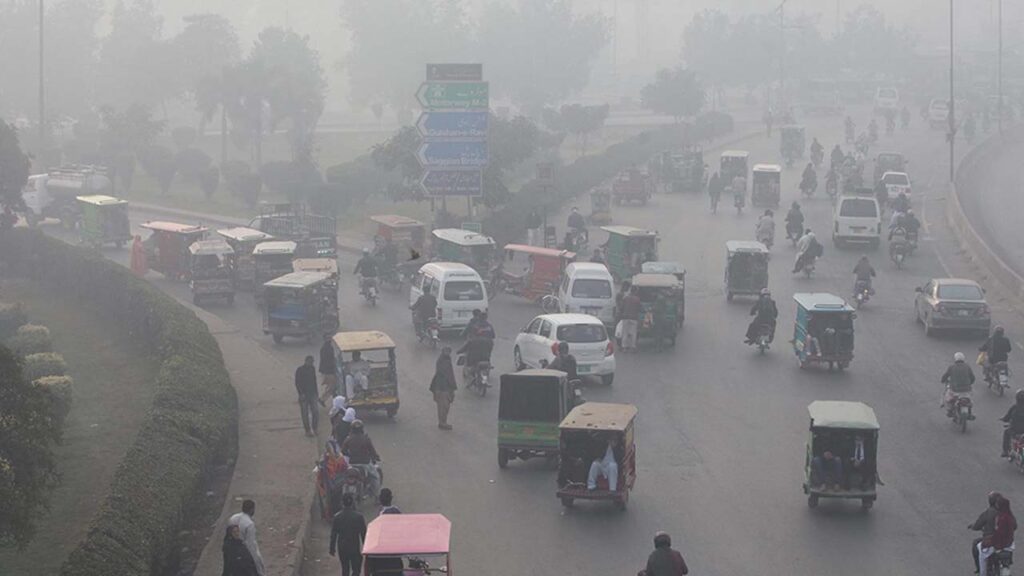- Web Desk
- Feb 19, 2026
Lockdown fails to reduce smog: Lahore struggles with alarming pollution levels
-

- Web Desk
- Nov 27, 2023

LAHORE: In defiance of lockdown measures and stringent actions to combat smog and air pollution, Lahore, Pakistan’s second-largest city, reclaimed its position on Monday as the world’s most polluted city.
This comes despite the government’s endeavours to mitigate toxic smog within the metropolis.
According to the real-time data from Swiss group IQAir, Lahore secured the top spot with an Air Quality Index (AQI) of 353 in the afternoon.
The AQI, a standardised tool measuring air pollutants like particulate matter and ozone, serves as a crucial indicator for public health.
An AQI between 101 and 200 is considered ‘unhealthy,’ particularly for sensitive groups, while an AQI between 201 and 300 is deemed’very unhealthy,’ and above 300 is categorised as ‘hazardous.’
Last week, the prevalence of heavy smog compelled authorities in Pakistan’s most populous province to announce new schedules for schools and markets.
However, residents lamented on Monday that government efforts were not yielding positive results.
Despite a Sunday ban on fuel-powered vehicles, restricting only cycle usage on Lahore’s Mall Road to promote eco-friendly transportation, the rising smog levels persist unabated.
In some markets and shops in Lahore, restrictions were disregarded, with businesses operating until 4 pm on Sunday. The bustling of people at food points in Liberty Market, Ichhra, and Anarkali Bazaar was evident.
Faisalabad witnessed prompt action by the police and administration against markets operating contrary to government orders for closure as part of the smart lockdown.
Authorities, including the commissioner, city police officer, and deputy commissioner, compelled shopkeepers to shut down businesses.
In Sialkot, enforcement of the lockdown was active, resulting in the sealing of six hotels, eight business centres, and the Imam Sahib Sunday Bazaar.
Daska experienced the sealing of a school and 11 business centres, with 12 individuals arrested for violating the lockdown.
Despite announced restrictions on market hours, gym operations, and office timings, the smog situation showed no improvement.
In Gujranwala, shopkeepers openly violated lockdown restrictions imposed by the Punjab government.
Read more: Petrol price expected to reduce on December 1st in Pakistan
Businesses, including mobile shops in Shaheenabad and stores in Gulshan Colony, Kangniwala, and Pasrur Road, remained open in Gujranwala.
The annual recurrence of smog is attributed to the burning of stubble and smoke emissions from brick kilns.
Residents emphasise the need for proactive planning by government officials to address the root causes of smog.
Some argue that lockdowns are not a solution and would disproportionately impact the poor.
The Punjab government attributes the smog to crop residue burning in neighbouring India and contemplates cloud-seeding as a measure to artificially induce rain and disperse smog and haze.




